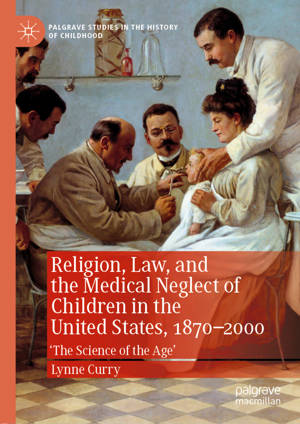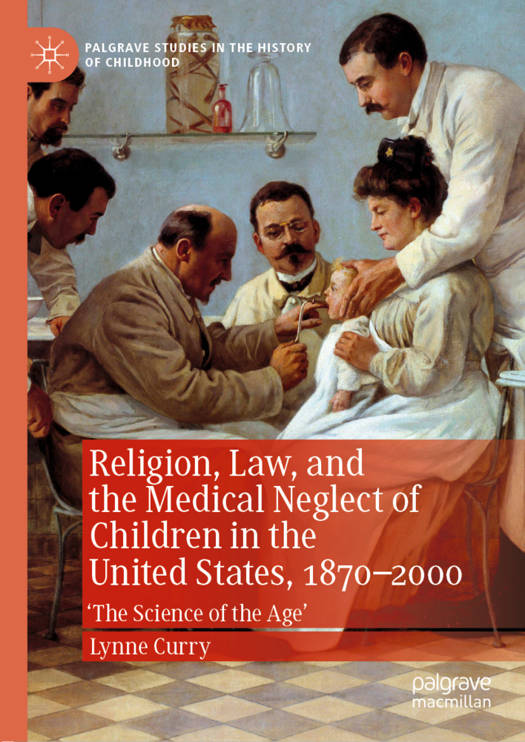
- Afhalen na 1 uur in een winkel met voorraad
- Gratis thuislevering in België vanaf € 30
- Ruim aanbod met 7 miljoen producten
- Afhalen na 1 uur in een winkel met voorraad
- Gratis thuislevering in België vanaf € 30
- Ruim aanbod met 7 miljoen producten
Zoeken
Religion, Law, and the Medical Neglect of Children in the United States, 1870-2000
'The Science of the Age'
Lynne Curry
€ 63,45
+ 126 punten
Uitvoering
Omschrijving
Drawing upon a diverse range of archival evidence, medical treatises, religious texts, public discourses, and legal documents, this book examines the rich historical context in which controversies surrounding the medical neglect of children erupted onto the American scene. It argues that several nineteenth-century developments collided to produce the first criminal prosecutions of parents who rejected medical attendance as a tenet of their religious faith. A view of children as distinct biological beings with particularized needs for physical care had engendered both the new medical practice field of pediatrics and a vigorous child welfare movement that forced legislatures and courts to reconsider public and private responsibility for ensuring children's physical well-being. At the same time, a number of healing religions had emerged to challenge the growing authority of medical doctors and the appropriate role of the state in the realm of child welfare. The rapid proliferation of the new healing churches, and the mixed outcomes of parents' criminal trials, reflected ongoing uneasiness about the increasing presence of science in American life.
Specificaties
Betrokkenen
- Auteur(s):
- Uitgeverij:
Inhoud
- Aantal bladzijden:
- 197
- Taal:
- Engels
- Reeks:
Eigenschappen
- Productcode (EAN):
- 9783030246884
- Verschijningsdatum:
- 24/08/2019
- Uitvoering:
- Hardcover
- Formaat:
- Genaaid
- Afmetingen:
- 148 mm x 210 mm
- Gewicht:
- 399 g

Alleen bij Standaard Boekhandel
+ 126 punten op je klantenkaart van Standaard Boekhandel
Beoordelingen
We publiceren alleen reviews die voldoen aan de voorwaarden voor reviews. Bekijk onze voorwaarden voor reviews.











